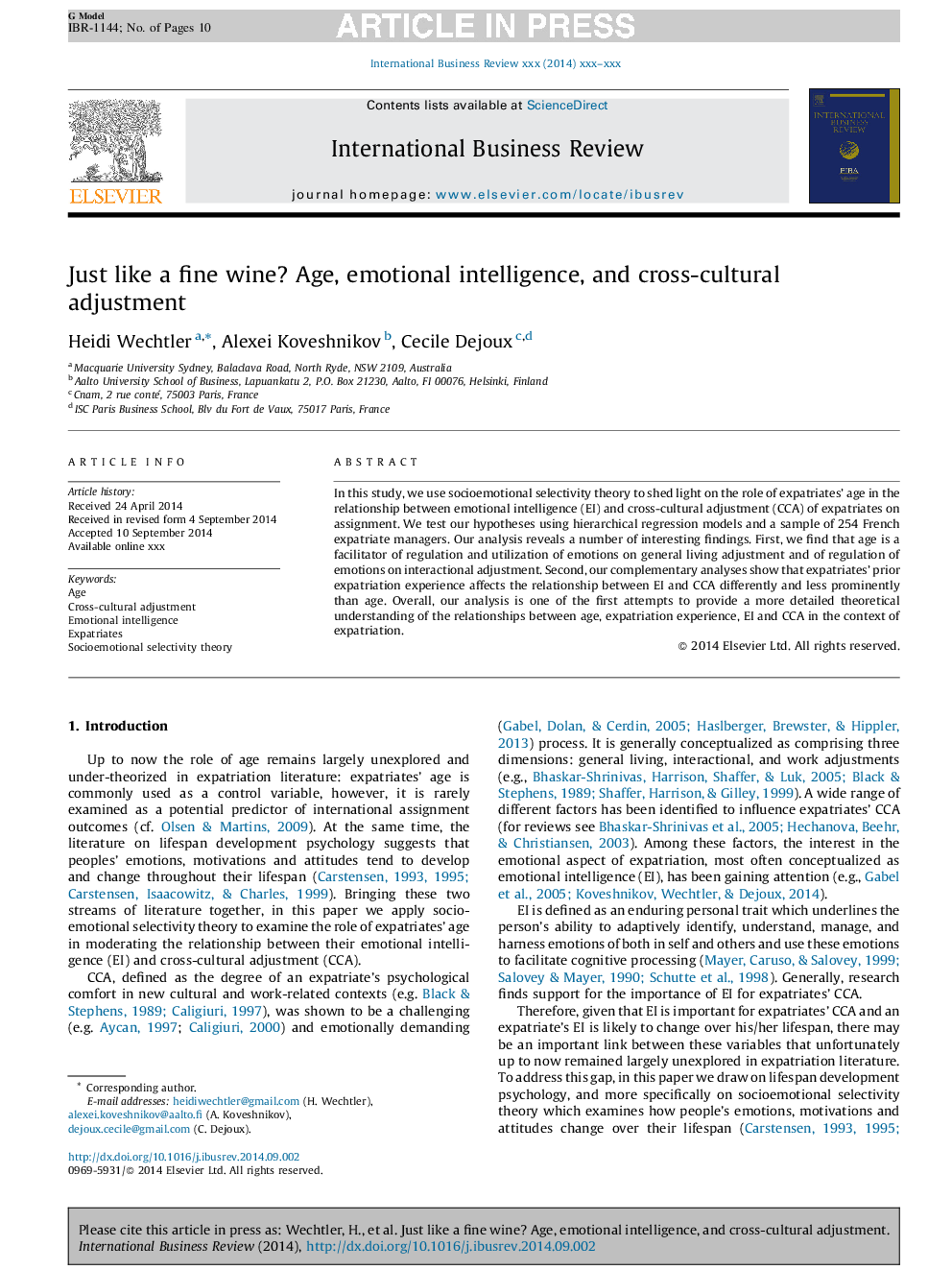| Article ID | Journal | Published Year | Pages | File Type |
|---|---|---|---|---|
| 10488525 | International Business Review | 2015 | 10 Pages |
Abstract
In this study, we use socioemotional selectivity theory to shed light on the role of expatriates' age in the relationship between emotional intelligence (EI) and cross-cultural adjustment (CCA) of expatriates on assignment. We test our hypotheses using hierarchical regression models and a sample of 254 French expatriate managers. Our analysis reveals a number of interesting findings. First, we find that age is a facilitator of regulation and utilization of emotions on general living adjustment and of regulation of emotions on interactional adjustment. Second, our complementary analyses show that expatriates' prior expatriation experience affects the relationship between EI and CCA differently and less prominently than age. Overall, our analysis is one of the first attempts to provide a more detailed theoretical understanding of the relationships between age, expatriation experience, EI and CCA in the context of expatriation.
Keywords
Related Topics
Social Sciences and Humanities
Business, Management and Accounting
Business and International Management
Authors
Heidi Wechtler, Alexei Koveshnikov, Cecile Dejoux,
